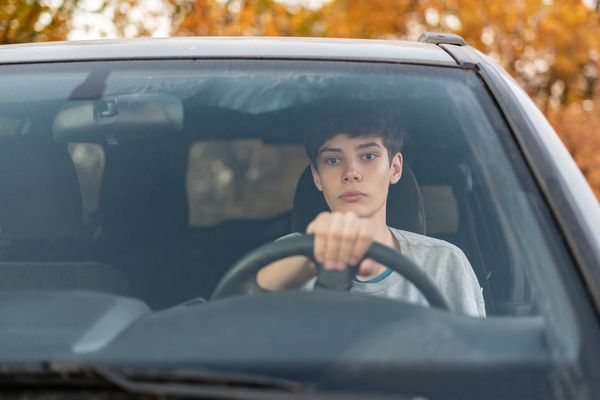Your guide to New York State young driver laws

Your guide to New York State young driver laws
Learning to drive and navigating the roadways of New York as a young driver can certainly be both an exciting and nerve wracking experience . With the bustling streets of New York City, the scenic routes of the Adirondacks, and everywhere in between, New York State offers diverse driving experiences. However, these opportunities of course come with rules and regulations designed to ensure the safety of all road users.
Keep reading for a brief look at New York State’s young driver laws. Our New York traffic ticket lawyers are here to help new drivers and their guardians understand the legal landscape and drive safely.
Understanding New York’s Graduated Driver Licensing (GDL) program
New York’s Graduated Driver Licensing (GDL) program is designed to provide new drivers with a phased approach to gaining road experience. It includes several stages: the learner’s permit, the junior license, and the senior license.
1. The learner’s permit
In New York State, individuals can apply for a learner’s permit starting at age 16. This permit allows them to drive under certain restrictions, primarily under the supervision of a licensed adult over the age of 21. To qualify, applicants must pass a written test that covers road signs, traffic laws, and safe driving practices.
Restrictions and requirements:
- Mandatory supervision by a licensed adult driver.
- No driving on any street within a park in New York City or any bridge or tunnel under the jurisdiction of the Triborough Bridge and Tunnel Authority.
- No driving in the DMV road test area.
2. The junior license
After holding a learner’s permit for a minimum of six months, completing 50 hours of supervised driving (including 15 hours at night), and passing a road test, young drivers may advance to a junior license. This license grants more freedom but is still subject to critical restrictions aimed at minimizing risks for new drivers.
Restrictions and requirements:
- No unsupervised driving in high-risk areas such as New York City.
- Limitations on the number of non-family passengers under age 21 unless accompanied by a parent, guardian, or driving instructor.
3. The senior license
At age 17 (with completion of a driver education course) or 18, a junior license holder can upgrade to a full license which lifts many of the restrictions imposed on younger drivers. However, all traffic laws must still be strictly followed, and penalties for violations can be severe, particularly for young drivers.
Special considerations and tips for compliance
Adhering to NYS young driver laws is critical not only for legal compliance but also for the safety of the driver and others. Feifer & Greenberg LLP recommends that young drivers and their parents familiarize themselves with these specifics:
- Distraction-free driving: Texting or using a cellphone while driving is illegal in New York and carries heavy fines and penalties. Devices should be used only in emergencies.
- Alcohol and drugs: The legal drinking age in New York is 21. Driving under the influence of alcohol or drugs is illegal and carries severe penalties, including potential license revocation.
- Speeding and reckless driving: These are among the top reasons for accidents involving young drivers. Adhering to speed limits and driving cautiously are imperative.
We have experience fighting all kinds of traffic charges
Understanding and following New York State young driver laws and vehicle and traffic laws in general can help ensure that new drivers stay in compliance and can significantly reduce the risks associated with driving. Parents and driving instructors can help pave the way for a lifetime of safe driving habits. Whether you are a young driver or the parent of one, taking these laws seriously is crucial. Should you need more detailed guidance or legal assistance regarding traffic violations or other related matters, Feifer & Greenberg LLP can potentially help.
For more information on specific statutes or to seek legal assistance, visit the New York DMV website or contact Feifer & Greenberg LLP for a free consultation.
Stay safe and drive responsibly!
FREE CASE EVALUATION
FAQ
We have organized a statewide network of attorneys. In our network are both attorneys who work for Feifer & Greenberg and attorneys who work for other firms that regularly provide of-counsel representation to our clients. This statewide network allows us to match clients in a particular county or court with local attorneys who regularly appear on similar matters in the same county or court. It enables us to help clients anywhere in New York State and in our opinion provide particularly effective and affordable representation for our clients. Local attorneys can draw on their particular local experiences and, with travel time and expense removed from the equation, help us keep our legal fees low.
We recommend fighting almost all tickets. Even if the current NY traffic tickets aren’t particularly harmful, you have an incentive to keep your record clean for the future. Convictions quickly lead to surcharges, insurance increases and other complications. You should strongly consider any decision to pay a ticket without fighting.
Our lawyers are experienced, prepared attorneys who understand the nuances of fighting traffic tickets. Experience, preparation and good decision making help us to help our clients avoid points, surcharges, insurance increases and the other negatives that can easily result from a traffic ticket.
Categories
- Aggravated Unlicensed Operation
- Commercial Driving Violations
- Criminal Charges
- Distracted Driving
- DUI/DWI
- Failure to Wear Seat Belt
- Failure to Yield
- Ignoring Red Light Signals
- Ignoring Stop Sign
- In the News
- Leaving the Scene
- New York Traffic Violations
- Reckless Driving
- Speeding
- Suspensions & Revocations
- Unsafe Lane Change


